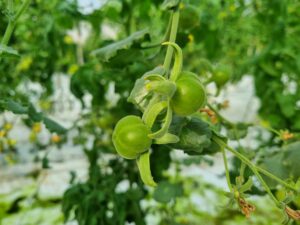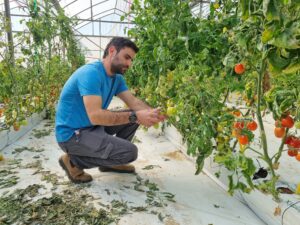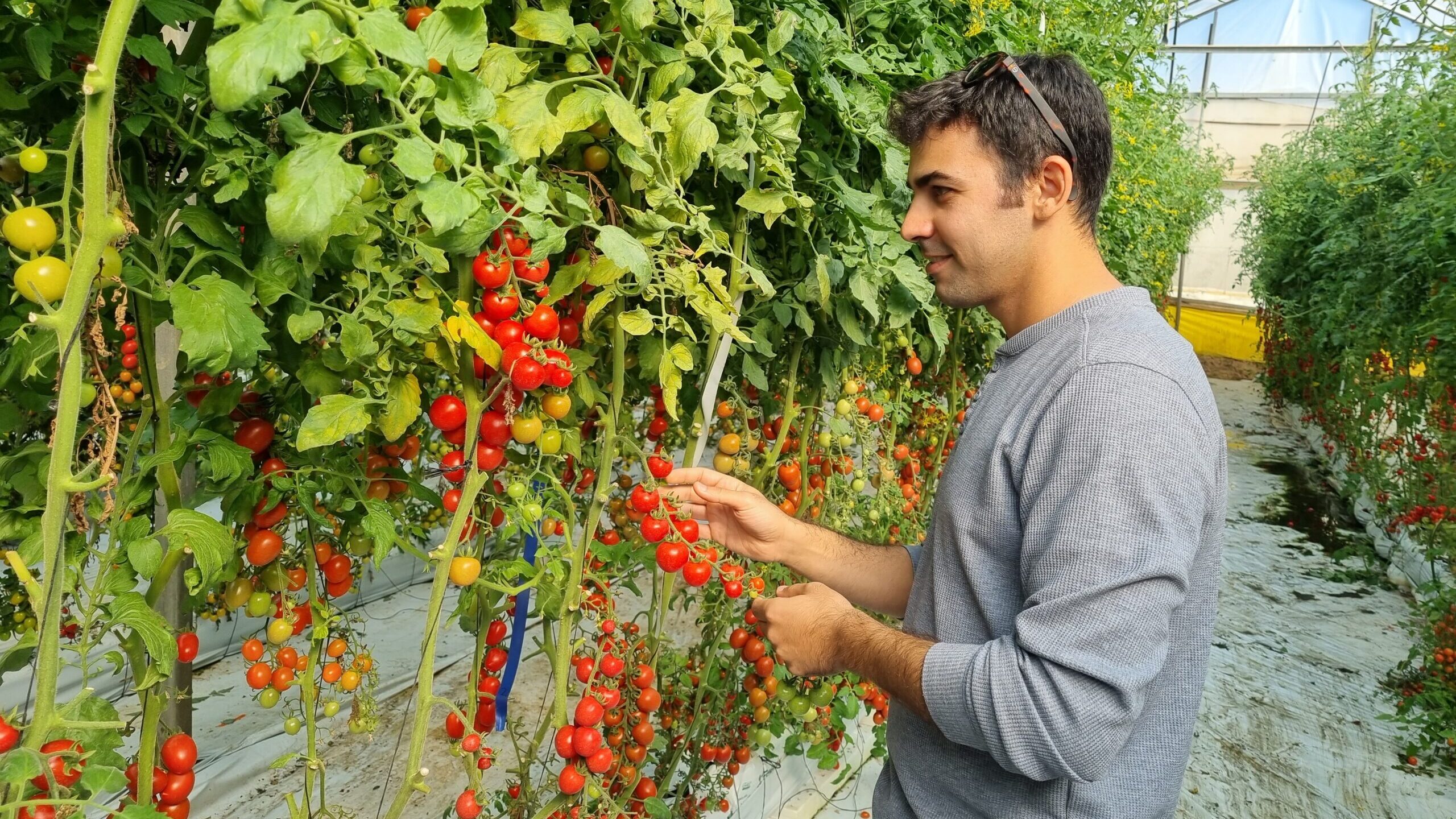Israeli Scientists Develop Drought-Resistant Tomatoes in Response to Climate Change
New variety can grow with half as much water; study comes as tomato prices expected to surge
Israeli researchers have developed a new variety of tomato that is more resistant to drought conditions and could help farmers cope with the destructive impact of climate change.
An in-depth genetic analysis led by the Hebrew University of Jerusalem’s Shai Torgeman and Professor Dani Zamir identified interactions between two areas of the tomato’s genome that lead to increased yield and resistance to dry conditions.
The resulting new tomato variety, which has yet to be named, can cope with extreme weather conditions. The study’s findings were published on Monday in the peer-reviewed Proceedings of the National Academy of Sciences of the United States of America (PNAS) journal.
“Commercial tomato breeds grown in open-field conditions and that you find in supermarkets on average require 317,000 gallons per acre each season,” Shai Torgeman, a doctoral candidate at the Hebrew University of Jerusalem, told The Media Line. “In our study, we cut this water amount in half and got great results.”
To achieve this, scientists crossbred two species of tomatoes – a wild variety that comes all the way from the deserts of western Peru, with a common commercial cultivar that is widely available.

The new variety of tomato developed by Hebrew University researchers is resistant to drought. (Maya Margit/The Media Line)
The goal was to pinpoint exactly which parts of the plant’s genome affect its yield and other important agricultural traits.
“We have 1,500 accessions and each one contains a segment of the wild tomato’s genome,” Michael Zilberberg, a research assistant working with Torgeman, told The Media Line.
“This allows us to see how each part of the genome affects the fruit, the plant’s growth, its size, as well as its resistance to drought and pathogens,” he continued. “Because of these different results, we can find the characteristics that are important to us and discover where these characteristics come from in the wild tomato’s genome.”
The study found that two specific areas in the plant’s genome lead to a 20%-50% increase in the overall yield in both regular and dry conditions. The overall size of the plant also was improved.
According to the researchers, the findings demonstrate the effectiveness of using wild species to enhance agricultural output. They could also prove to be widely applicable to other plants in the future.
“There is global warming and farmers need tomatoes that can cope with these changing weather conditions,” Torgeman explained. “Global warming does not only cause higher temperatures but also extreme weather like sudden torrential downpours or drought. So, we need plants that have improved capabilities.”
California, which produces about 30% of the world’s tomatoes and 95% of America’s processed tomatoes, has been suffering from drought for years, which has made it harder for farmers to make a profit.
The lack of rain is so severe that tomato prices are expected to surge by 25% over the coming year, Don Cameron, president of the California State Board of Food and Agriculture, told Reuters.

Michael Zilberberg, a research assistant working with Hebrew University’s Shai Torgeman, examines some of the new tomatoes being studied by researchers. (Maya Margit/The Media Line)
But tomatoes are not the only crop at risk due to climate change; onions, garlic, and many more fruits and vegetables also have suffered as a result of continuous poor conditions. According to a recent study in the scientific journal Nature, the years 2000 to 2021 represent the driest such period in over a millennium, an important factor contributing to rapidly rising food prices across the globe.
The new tomato breed being developed in Israel could help soften the blow. It is expected to hit supermarket shelves in the near future and likely will be used as a processing tomato in the production of ketchups and sauces, Torgeman said.
“We’re now in the stage of cultivating the first crossbred species for commercial purposes and I believe that this will be available on the market in the next two to three years,” he noted.


